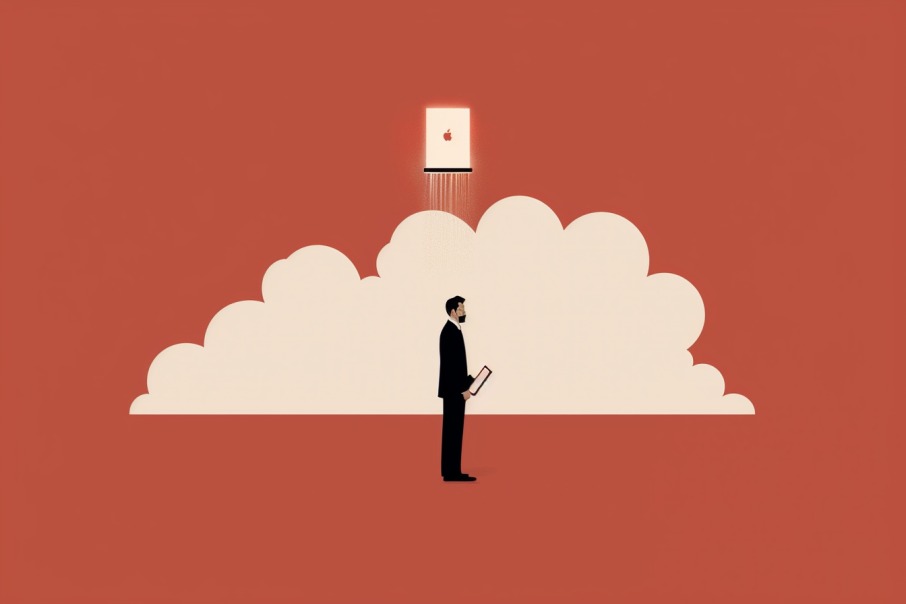Sometimes even technology giants let themselves be overcome by pessimism or are guided by preconceptions and end up making predictions that time then enjoys proving wrong. From Apple to IBM, from Internet pioneers to Warner Bros, stories of misjudgment are numerous and have marked turning points in technological development. Here are five of the most famous prophetic fiascos in the history of technology (and five AI-generated images that show the “alternative future” these prophecies tell.)
Apple's technological Titanic: the iPhone
Let's rewind the tape of time to 2007. On stage, with his typical challenging smile and his theatrical manner, there is Steve Ballmer, Microsoft's number one. His words focus on the latest gadget launched by Apple, a certain iPhone. Ballmer laughs, jokes, has fun: that expensive contraption, according to him, will never gain a prominent place on the market. Fast forward to today: the iPhone has not only gained a significant market share, but has practically reinvented the concept of the smartphone, and continues to rake in the money and the consensus.

Big Brother has fallen: the collapse of the Internet
Year 1995. Robert Metcalfe, “father” of Ethernet and one of the pioneers in the field of computer networks, launches into shocking prophecies during a speech at the World Wide Web Conference: the Internet is destined to implode, he says, and will “catastrophically collapse” within the following year. How did it go then? The Internet has not only survived, but has become an essential pillar of our daily lives, permeating every aspect of our daily life, from work to leisure. A prediction, that of Metcalfe, completely off target.

The IBM prophecies about computers, the good ones
in 1943 Thomas Watson, president of IBM, one of the largest technology companies in the world, made a somewhat risky prediction. The phrase is so striking that it has gone down in history. You'll all remember her: "I think there's a world market for maybe five computers." This oft-quoted statement certainly reflected the war period and the enormous size, cost and complexity of early computers. History, however, has responded to these prophecies in a peremptory way: today there are billions of computers and connected devices in the world, from laptops to smartphones, through to tiny computers incorporated into household appliances and cars. Not so basic, Watson.

Cinema, beautiful because it is silent
Let's go to 1927. Harry Warner, co-founder of Warner Bros, is quite skeptical about the sound cinema revolution. “Who the hell wants to hear actors talk?” is his famous rhetorical question, uttered shortly before the advent of sound. Answer? All of us. Talkative cinema became the norm, changing the film industry forever. The innovation has allowed feelings and storylines to be expressed more deeply, transforming the way stories are told on the big screen. Try again, Harry.

The mother of all prophecies: mobile phone, a fad
What you, Marty cooper, the man who invented the cell phone, in 1980 he was extremely pessimistic: mobile telephony, he said, will have a short life. Maybe 10 years. His prophecies reflected the technological limitations of the time, with cell phones as big as bricks and as expensive as luxury cars. Nearly half a century later, not only are cell phones still here, but they have multiplied and evolved, becoming an indispensable element of our lives.

These stories teach us one thing: it is really difficult to make predictions about the progress of technologies. Innovation, then, has the habit of exceeding even the most optimistic expectations. Instead, what seem like crazy prophecies or doomed projects turn out to be the changes that redefine the future.


